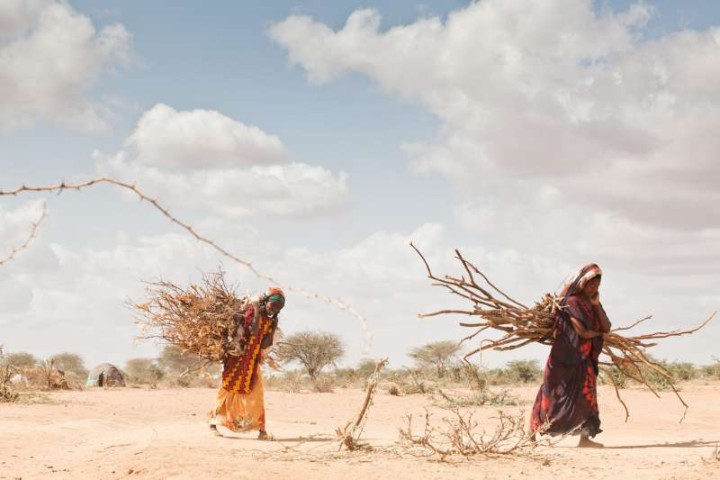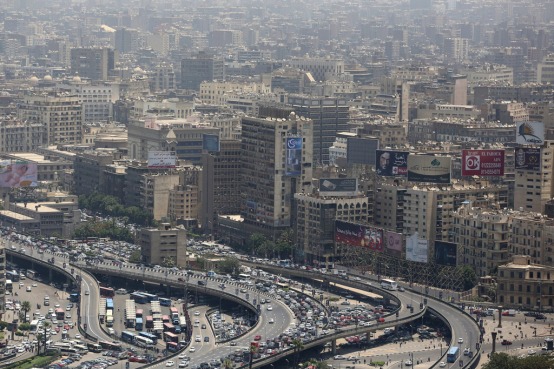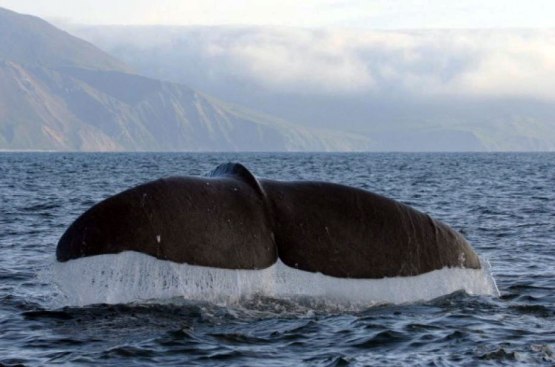Development cannot be sustainable if it does not address the challenge of climate change, United Nations Secretary-General Ban Ki-moon on 29 June 2015 told Member States as he opened a High-Level Event on Climate Change convened in New York by the President of the UN General Assembly, Sam Kutesa.
“Let us always remember that climate change and sustainable development are two sides of the same coin, with two mutually reinforcing agendas,” the UN chief explained to delegations gathered for the event.
Just months ahead of the next Conference of the Parties (COP) to the UN Framework Convention on Climate Change (UNFCCC), which will take place in Paris, today’s [29 June] event has been convened in support to the process that will ultimately result in an agreement intended to succeed to the landmark Kyoto Protocol on reducing greenhouse gas emissions.
Only by acting now and standing together can we achieve the results we need in the time we have left. Only by acting now and standing together can we tip the scales and change the course of history.
Among the participants, Academy Award-winning actor and long-time conservationist Robert Redford, and 15-year-old indigenous climate activist Xiuhtezcatl Roske-Martinez, are expected to join the broad call for action to energize multilateral cooperation on climate change. Raised in the Aztec tradition, Roske-Martinez is Youth Director of a non-profit organization called Earth Guardians.
Keynote speakers are expected to include, Anote Tong, President of Kiribati, Mogens Lykketoft, Speaker of the Parliament of Denmark and President- elect of the 70th session of the General Assembly, Manuel Pulgar-Vidal, Minister of the Environment of Peru, President of COP20, and Laurent Fabius, Minister of Foreign Affairs of France, President of COP21.
“Adoption of a transformative post-2015 development agenda in September, achieving a successful outcome from the upcoming Third International Conference on Financing for Development and concluding a global climate change agreement will be monumental milestones towards improving the livelihoods of people around the world,” Assembly President Kutesasummarized.
Example of good fertile earth that has dried and cracked from lack of rain. Photo: FAO/Jeanette Van Acker
But a climate change agreement in Paris will not be the end point, observed the Secretary-General: “it must be a turning point in how the world collectively responds to the defining challenge of our time,” he stressed.
“Today, we have come together to take stock of what we have pledged, what we have delivered, and what else we must do to ensure that world leaders and their governments adopt an ambitious, universal agreement in December.”
Journey towards bold climate action is therefore at a “critical moment”, he stated.
The Secretary-General welcomed a number of recent achievements, such as the fact that the world’s three biggest economies – China, the European Union and the United States – have “placed their bets” on low-carbon, climate-resilient growth, while the two biggest emitters of greenhouse gases announced ambitious climate actions. And other major economies in the G7 and G20 made clear their intention to act, he rejoiced.
“Nevertheless, these pledges cover only a portion of total global emissions. We must seize today’s opportunity to make a strong call to all Parties to submit their Intended Nationally Determined Contributions (INDCS), bearing in mind the urgent need for concrete actions by all,” advised the President of the General Assembly.
Another cause for satisfaction, pointed out the Secretary-General, is the dramatic fall in prices of renewable energy sources, which in some places has reached parity with fossil fuels. “The world is now using more renewable electric power each year than it is from coal, natural gas and oil put together,” Member States were told.
Moreover, he went on to say, investors and insurers are starting to integrate climate risk into their decision-making, while citizens, civil society and faith leaders, most recently Pope Francis, are pushing for action.
However, the pace of the UNFCCC negotiations is far too slow, said Ban, underscoring that the key political issues are still on the table. “With only ten negotiating days remaining before Paris, governments must accelerate their efforts.”
That recommendation was echoed by the President of the General Assembly, who emphasized how much negotiations launched earlier this month in Bonn must make “substantive progress.”
View of City of old Cairo, Egypt, during mid-morning rush hour. Photo: World Bank/Dominic Chavez | Source: UN
Highlighting what a “meaningful” agreement in Paris should include, the Secretary-General said that first, it “must” provide a strong signal to governments and markets that the world is committed to building a low-carbon future, “and that there is no going back.”
“Second, an agreement must be durable so that it provides the private sector with the predictability and policy frameworks it needs to invest in clean energy and climate-resilient approaches.”
Third, Ban continued, it must be flexible so that it can incentivize and incorporate more ambitious, “science-based nationally determined targets over time.” While urging countries that did not submit yet their INDCs to do so as soon as possible, he reminded delegations that these targets “will not be sufficient to place us on a less-than-2-degree pathway.”
“An agreement must therefore enable countries to regularly review progress towards this goal, and encourage more ambitious, nationally determined targets to meet it.”
Such agreement must also uphold the principle of equity, support the adaptation needs of developing countries, and demonstrate solidarity with the poorest and most vulnerable countries through a focused package of assistance. Finally, “it must have clear mechanisms for measuring, monitoring and reporting progress on a full range of actions.”
Noting that credible climate financing is essential, the Secretary-General urged developed countries to provide a politically credible trajectory for “mobilizing $100 billion per year by 2020” to support developing countries in curbing emissions and strengthening their resilience.
“It is also important to ensure that effective platforms for developing and sharing technologies and innovative research are enhanced”, added the Assembly President in his remarks. “Barriers” to the transfer of green technologies, including intellectual property protection issues, need to be urgently addressed, he said.
“I will proactively engage with leaders from both the global north and south to make sure this goal is met and is considered credible by all,” the Secretary-General assured. “I pledge to you that I will spare no effort to ensure that the world leaders who are responsible for an ambitious agreement in Paris – and the financing needed to implement it – are directly engaged.”
UNDP-GEF report says as little as $5 billion in public funds could catalyse action and financial flows to reverse ocean degradation. Photo: UNDP/A. Chetvergov
Echoing Ban’s sense of urgency during a high-level panel held in the afternoon, Oscar-winner and renowned climate activist Robert Redford warned that for the international community “the time for half measures and climate denial is over.”
“We see the effects all around us – from drought and famine in Africa, and heat waves in South Asia, to wildfires across North America, devastating hurricanes and crippling floods here in New York,” the actor told those gathered. “We must be a movement that includes every single nation on Earth, because climate change affects every nation on Earth.”
He added: “Only by acting now and standing together behind a universal climate agreement can we live up to the UN’s founding promise. Only by acting now and standing together can we achieve the results we need in the time we have left. Only by acting now and standing together can we tip the scales and change the course of history.” (Source: UN).
New Hope for Avoiding Catastrophic Climate Change
Climate Change: Governments Say All the Right Things But Do Exactly the Opposite
Climate Change: Small Island States Face ‘Existential Threat’
Climate Change ‘Threatens Self-determination’ of Citizens in Island States
Tiny Though Some May Be, Islands Play a “Huge Role” in Sustaining Life on the Planet
‘2015 Pivotal for Finalizing Universal Climate Change Agreement’
‘Never before have the risks of climate change been so obvious and the impacts so visible’
‘Climate Change Threatens Irreversible and Dangerous Impacts’
What Is Known and What Is Not Known about Impacts of Climate Change – Report
UN Summit: Tackling Climate Change Requires “All Hands on Deck”
Climate Summit: Extreme Weather Hits Asia, Europe… a Further Indication of the “New Normal”?
Beating Climate Change, Either Lead or Get Out of the Way
No ‘Plan B’ for Climate Action as There Is No ‘Planet B’
Economic Growth Possible Even While Tackling Climate Change — Report
‘We Are Running Out of Time’, Experts Warn as Climate Change Debate Heats Up
Climate Change Impacting Entire Planet, Raising Risk of Hunger, Floods, Conflict – UN Report
Impact of Climate Change Could Reverse Decades of Development in Africa ‘Majestic’
Greenland Provides First-hand Look at Impacts of Human-induced Climate Change
Bangladesh: the Crippling Cost of Climate Change Adaptation
Looming Problems: Not Enough Energy; Too Much of Climate Change
Clean Energy, Water Strategies to Halt ‘Runaway’ Climate Change – Experts
The ‘Future We Want’, Nowhere to Be Found in Rio+20
Demand for Life’s Essentials: 50% More Food, 40% More Energy and… 35% More Water
Food Inequality Equation: 1.5 Billion Obese; 925 Million Hungry













